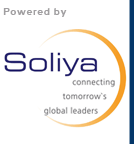|
|

|

|
| |
|
 |
 |
 Welcome and Ahlan Wesahlan!
Welcome and Ahlan Wesahlan!
One of the greatest challenges in global politics today is the
dangerous tension growing between the United States and the
world's Muslim states and communities. Relations between the
world's community of 1.4 billion Muslim believers and the world's
leading state power are at a historic low point, to the benefit
of neither. This deepening divide is not just tragic, but is
also a critical impediment to cooperation on a breadth of vital
issues, ranging from dealing with terrorism and radicalism to
supporting human development and freedom.
The U.S.-Islamic World Forum is designed to bring together key leaders in the worlds of politics, business, media, academia, and civil society from across the Islamic world (including Muslim communities in Africa, Asia, Europe, and the Middle East) and the United States. Such an institutionalized dialogue between leaders and opinion-shapers is an urgent necessity, in order to help prevent a fault line from forming between the West and the Islamic world.
The Forum is designed to serve as both a convening body and catalyst for positive action. Therefore, its focus will not be on dialogue just for dialogue's sake, but on developing actionable programs for government, civil society, and the private sector. The Forum's annual conference in Doha is targeted to become the foremost meeting for positive cross-cultural engagement among leaders from the U.S. and the Islamic world. But the meetings will also provide the foundation for a range of complementary activities designed to enhance the effectiveness of the dialogue. These include a follow-up regional conference series, which would run parallel conferences within other Muslim regions, the assembling of task forces of policymakers and experts, and associated outreach, research, and publications. Collaborative media, education, and youth-centered programs, such as the impressive Connect Program by Solis, will also be linked to the Forum, to help expand its impact.
We would like to express our deep appreciation to the Government of Qatar, the Ford Foundation, the Education and Employment Foundation, Haim Saban, and the Brookings Institution, for helping to make the Forum possible. Given ongoing events, its meetings could not have come at a more timely and needed juncture.
Kindest regards,
|

Professor Stephen P. Cohen
Project Co-Convenor |

Ambassador Martin Indyk
Project Co-Convenor
|

Dr. Peter W. Singer
Project Director |

Professor Shibley Telhami
Project Co-Convenor |
© The Brookings Institution 2003
|
|
|



